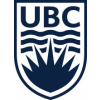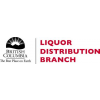Staff - Non Union
Job Category
M&P - AAPS
Job Profile
AAPS Salaried - Research and Facilitation, Level D
Job Title
Operations Manager and Staff Scientist, Biodevice Foundry
Department
Administrative Management School of Biomedical Engineering Faculty of Medicine
Compensation Range
$8,785.08 - $13,703.08 CAD Monthly
The Compensation Range is the span between the minimum and maximum base salary for a position. The midpoint of the range is approximately halfway between the minimum and the maximum and represents an employee that possesses full job knowledge, qualifications and experience for the position.
In the normal course, employees will be hired, transferred or promoted between the minimum and midpoint of the salary range for a job.
Posting End Date
July 16, 2024
Note : Applications will be accepted until 11 : 59 PM on the Posting End Date.
Job End Date
Jun 30, 2026
This position is a 2-year term appointment, with the possibility to renew.
At UBC, we believe that attracting and sustaining a diverse workforce is key to the successful pursuit of excellence in research, innovation, and learning for all faculty, staff and students.
Our commitment to employment equity helps achieve inclusion and fairness, brings rich diversity to UBC as a workplace, and creates the necessary conditions for a rewarding career.
Job Description Summary
The UBC School of Biomedical Engineering (SBME) is a partnership between the Faculties of Medicine and Applied Science, acting as a nucleus for education and training, research, and innovation in biomedical engineering, creating new knowledge, new academic and training programs, and fostering translation and innovation.
Its vision is to transform health care outcomes through unconstrained exploration of the best possible integrative solutions across engineering, medicine, and biology.
The Biodevice Foundry will be an important core-facility serving the needs of the SBME and UBC. More specifically, it will be a state-of-the-art facility for the design, fabrication, packaging and application of Biodevices across biological scales that will lead innovation and capacity development in areas of biotech and life sciences.
This facility will nucleate faculty, students, and industry with a shared interest to innovate and translate devices for precision medicine and biomanufacturing.
In 450 m2 of space, the facility has been organized as dedicated spaces around a clean-room, biofunctionalization area, machine shop, electronics shop, and a rapid prototyping facility.
In addition to servicing the needs of the SBME and UBC, the foundry will be used by national and international groups from industry, academia and government laboratories.
Towards setting up the Biodevice Foundry, our mission is to create the first integrated Biodevice R&D and training program in BC which will attract world-class researchers, students and industrial partners building operational sustainability and strengthening the regional ecosystem.
The Biodevice Foundry also strives to work closely with the SBME Innovates incubation hub and will play a crucial role both in the early-stage development of new technological solutions and through training individuals with whom proof-of-concepts can be developed for exploring manufacturability, scale-up and commercialization of biodevices.
Utilizing leadership, strategic, technical, financial, and operational expertise, the Operations Manager, Biodevice Foundry will help to launch and operate the foundry as a user-fee facility, attracting other national and international academic institutions, government, and industry organizations and be primarily responsibility for :
identifying the needs of the community, mapping these needs into equipment specifications, follow-up with vendors for ordering, installation and provisioning of the space.
- positioning the foundry as an attractive hub for biomedical devices leveraging micro- and nano-lithographic processing, bioprinting and tissue engineering needs within UBC;
- fostering the consolidation and expansion of device research at UBC into exciting new areas around precision medicine, biomanufacturing, wellness and beyond;
efficiently running and maintaining as the number and range of partnerships increases and the amount and variety of translational work that will take place in the facilities increases developing training programs within the foundry while balancing user needs for research and training.
Organizational Status
Reporting to the Director of Strategic Planning & Operations and the Biodevice Foundry Scientific Director, the incumbent will set vision and strategy for use of the Biodevice Foundry, promote the use of the facilities, and manage interactions related to their use by the SBME, other UBC faculty, and national and international consortiums including academic and government institutions, and industry partners who contract with the Foundry to use the clean-room and allied facilities to support their research interests.
Work Performed
Leadership
Formulates and implements the short and long-range strategies and goals for the operation and promotion of the facilities;
develop the tactical and operation plan for the facilities.
Responsible for revenues and expenses. Develop the budgetary requirements and determine the amount of user fees required to balance budgetary needs with the need to provide a competitive, timely, and high-quality service.
Oversees the implementation of the budget to ensure that funds are used as planned, that variances are identified and accounted for, and ensure compliance with UBC policies and procedures by developing and implementing proper tracking and reporting systems.
Establishes and maintains work plans and management procedures for the short and long term human resource allocations. Recruit and orient staff accordingly.
Directs the activities of staff, establishes their responsibilities, reviews workload assignments, and adjusts schedules according to workload to ensure levels meet operational requirements.
Monitors and reviews performance and provides ongoing coaching and mentoring.
Participates as a member of the executive management team on various committees determining project and space requirements, new projects, redevelopment of existing space, and new construction.
Setup of Facility
Collaborates with the Foundry Scientific Director to understand research, innovation and commercialization goals of the SBME and incorporate this understanding into the set-up of the facilities, including their overall design and layout.
Liaises with UBC facilities management to ensure compliance with all regulations and requirements set by the university.
Maintenance of Facilities, Laboratories and Equipment
Identifies any necessary maintenance or upgrades and obtains cost estimates for implementing improvements; advises the Director of Strategic Planning & Operations and the Biodevice Foundry Scientific Director with regard to the use of funds allotted to maintenance and upgrades to equipment and facilities;
Ensures that maintenance plans are in place so as to minimize downtime in the facilities, taking into account the lifespan of equipment and / or its parts.
Ensures that the plan is effectively implemented, taking into account the needs of users and timing of their research experiments.
Plans, develops, and establishes communication mechanisms to ensure that maintenance plans are well communicated to stakeholders and users;
Establishes strong supplier and equipment servicing relationships, sources reliable partners and negotiates contracts with them.
Maintains ongoing relationships and continuously evaluates all supplier relationships to ensure that they continue to meet the needs of the facilities.
Takes the lead in anticipating, addressing and resolving any issues with suppliers.
Develops a system to keep a record of all equipment and assets of the facilities; take primary responsibility for ensuring that adequate insurance is in place to cover all risks to staff and assets.
Coordinates with UBC Facilities Management on preparation and completion of improvement projects and maintenance of the building.
Establishment of Policies and Procedures
Develops a risk management strategy for the facility that includes an assessment of all conceivable risks, an assessment of their likelihood and severity, and the plan or procedure to mitigate them.
Regularly reviews the plan, and takes potential risks into account in long- and short-term decision making.
Develops and implements policies and procedures for use of the facilities, sharing of resources, maintenance of equipment, safety, and quality.
Ensures that policies are in line with UBC’s overall policies and government regulations, and that they are well communicated, understood, and followed.
Establishes safety and quality standards for all equipment and develops quality control and quality assurance programs; oversees safety and quality programs to ensure they are implemented and that users act in compliance with the standards;
maintains records and generates reports as requested.
Proactively takes the initiative to identify information system or technology needs of users of the facilities. Ensures that any information systems in place reflect these needs, and that users understand them.
Ensures that all information and data collected in the lab is kept safe and that intellectual property is protected; prepares reports on research activity in the facilities.
Remains up-to-date on new federal, state, industry or employer standards and investigates ways to improve procedures or update them if required.
Use of Facilities
Promotes liaisons and partnerships with other national and international institutions, governments and companies as well as UBC researchers.
Proactively works with the Foundry Scientific Director to pplan, manage and co-ordinate projects in the facility and orchestrates multiple projects and users to make optimal use of this 24 / 7 facility.
Collaboratively resolves issues and conflicts that arise. Serves as an advisor to faculty and facilities users to meet schedules and resolve complex and unusual technical problems.
Anticipates potential problems and help staff to resolve them as they occur to get back on schedule.
Fostering Learning
Provides technical advice to users of the facilities as they design experiments to learn how to fabricate biodevices, integrate biomaterials and reagents into these devices and develop devices that demonstrate fundamentally new types of functionality.
As requested, attends, or serves as a guest speaker at, local, national and international conferences, seminars and workshops;
Supports the SBME’s goal to train the next generation of entrepreneurial researchers and innovators from foreign institutions, world-leading companies, and local start-ups, with essential skills in research.
Supports development of undergraduate, graduate, and postgraduate educational initiatives including activities around biomanufacturing.
Consequence of Error / Judgement
The SBME must demonstrate its potential to move from internationally excellent to globally exceptional, both in terms of academic impact and translational impact.
The Biodevice Foundry provides the space, equipment, and technical expertise to conduct the research and will be an ideal facility to create advanced proof-of-concepts for a translational pathway for commertial products.
As state of the art facilities, they provide the venue that will enable the expansion of partnerships and the building of UBC s reputation as a source of the resources and expertise required by industry, government and other academic institutions.
Ultimately, errors in judgement that lead to the inability to complete experiments in a timely and effective manner could mean that Foundry will not meet the required deliverables to secure additional funding and / or revenues from sources such as grants and user fees.
The Operations Manager makes independent decisions and recommendations regarding the use of the facilities by all users and is responsible for all revenues and expenses.
Poor decisions or errors in judgement may result in large financial repercussions and / or ultimately result in the facilities being unable to achieve their goal of being financially self-sustaining and they will no longer be able to run.
A lack of efficient design, implementation and oversight of processes, procedures, scheduling, risk management, or maintenance planning will lead to cost overruns, work stoppages, and other issues that will result in delayed progress of experiments.
Delayed progress is the common downfall of facilities like this in other institutions, and the consequences are catastrophic.
Poor decisions or errors in judgement may also result in unreliable results in experiments and research, experiments or facility periods being postponed or cancelled, or major damage to property and safety of persons.
Such inefficiencies would ultimately lead users to go elsewhere, resulting in lost revenues and reputational damage to the UBC and to SBME.
A poorly run and / or poorly maintained facility will also negatively impact the overall mandate of the SBME to build and maintain financial partnerships with industry, government, and other academic institutions partnerships that will bring in other revenue to Foundry and ensure its continued success.
There is also a consistent need to exercise judgement and tact in dealing with all internal and external contacts and users of the facilities to ensure that their needs are met in a manner that will solidify an ongoing relationship that will support the SBME’s vision of building a reputation as a world renowned hub of biomedical research with state of the art nanofabrication facilities.
Supervision Received
Works independently. Receives direction from the Director of Strategic Planning & Operations and the Foundry Scientific Director as required.
Called upon to use technical knowledge to resolve complex problems that have not been previously encountered. Performance will be evaluated on the basis of ability to lead and manage the nanofabrication facilities in a manner that will be safe, efficient, organized and result in sustained revenues for Biodevice Foundry.
Supervision Given
Oversees a team of scientific technicians and administrative staff.
Provides ongoing support, advice, and mentoring to users of the facilities with regard to training on, and use of, the equipment and the research experiments they are conducting to learn how to build and use microfluidics, MEMS and other microscale / nanoscale device for biomedical applications.
Ensures compliance with all policies and procedures related to safe conduct in the facilities, and conduct that will preserve the condition of all equipment and facilities.
Minimum Qualifications
For research project leadership, a post-graduate degree or an equivalent professional designation is required with a minimum of five years of related experience, including experience in a field of specialization, or an equivalent combination of education and experience.
Otherwise, an undergraduate degree in a relevant discipline is required with a minimum of seven years of related experience or an equivalent combination of education and experience.
- Willingness to respect diverse perspectives, including perspectives in conflict with one’s own
- Demonstrates a commitment to enhancing one’s own awareness, knowledge, and skills related to equity, diversity, and inclusion
Preferred Qualifications
- Post-graduate degree in a relevant discipline. PhD in biomedical engineering, mechanical / chemical engineering, microtechnology, physics, is preferred, or related undergraduate degree with extensive experience.
- 5 years relevant experience or equivalent combination of education and experience if not responsible for a research project.
- 5 years experience in a field of specialization or equivalent combination of education and experience if responsible for a research project.
- Experience with maintenance planning and budgeting;
- Experience managing a technical team, including setting goals and objectives, conducting performance reviews, coaching and mentoring;
- Extensive experience with method development, research, and the legal, safety and regulatory requirements of running a multi-user clean room facility.
- Strong interpersonal skills and the ability to work effectively with a wide range of constituencies in a diverse community.










